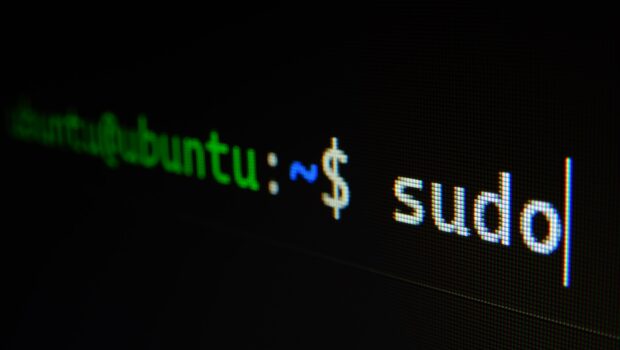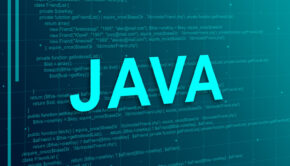Is Linux Beneficial for Programer Students?
Embarking on a programming journey is always thrilling. A world where logic meets creativity, coding can often feel like piecing together a dynamic puzzle. With the growing demand for coders, students today have a plethora of resources and platforms to choose from. One such choice, often debated in hushed corridors of computer science departments, is the operating system.
While Windows and MacOS have their fair share of adherents, there’s one OS that stands out for programmers: Linux. As a student, you might wonder, “Why should I even consider switching to Linux?” or “Aren’t the mainstream operating systems enough for my coding needs?”
These are valid questions, especially when you’re juggling assignments and projects and maybe even thinking, “Who can do my assignment while I set up my new Linux environment?” Well, fret not. By the end of this piece, you’ll not only understand why Linux can be beneficial for you but might even be tempted to give it a whirl.
1. Freedom and Flexibility Galore
One of the crowning glories of Linux is its open-source nature. What this means is you have access to the source code, and with the right skills, you can modify it to suit your preferences. This level of flexibility is unparalleled. You can tweak, optimize, and personalize your OS, making it a perfect fit for your programming needs. No more unnecessary bloatware or features you never use.
Moreover, this open-source approach provides a hands-on learning experience. By delving into the OS’s code, you not only improve your coding skills but also gain a deeper understanding of how operating systems function.
2. A Vast Repository of Tools and Applications
If you’re worried about missing out on essential tools and apps when switching to Linux, put those fears to rest. Linux boasts an extensive repository of tools tailored for developers. From compiler editors to state-of-the-art integrated development environments (IDEs), Linux has got you covered. Many of these tools are free, and the community-driven approach ensures they’re constantly updated and improved.
This vast array of tools isn’t just about quantity but quality. Linux tools often come with features and capabilities that can give their commercial counterparts a run for their money. This ensures that as a student, you’re always working with top-notch tools without burning a hole in your pocket.
3. Embrace the Power of the Terminal
Ah, the Linux Terminal, a feature that instills awe and maybe a tiny bit of fear in new users. But once you get the hang of it, there’s no turning back. The terminal provides unparalleled control over your system, making many tasks efficient and streamlined.
For programmers, mastering the terminal can significantly boost productivity. Whether it’s installing software, managing processes, or even coding, the terminal often provides a faster and more direct approach.
Moreover, many modern tech roles require a good understanding of the command line. Familiarity with the Linux terminal can give you a leg up when venturing into areas like DevOps, system administration, or backend development.
4. An Active and Supportive Community
Have you ever faced a coding or system issue and spent hours, if not days, trying to find a solution? With Linux, chances are someone has faced that issue before and, thanks to the community, has a solution ready.
Linux boasts a vast, active, and supportive community. Whether it’s forums, blogs, or dedicated websites, you can easily find guidance, tutorials, and advice tailored for every expertise level.
This community-driven approach ensures you’re never alone in your Linux journey. Be it understanding a new tool, troubleshooting an error, or even discussing the merits of a specific coding approach, the community is always there to help and support.
5. Enhanced Security Measures
A major reason many programmers lean towards Linux is its robust security framework. Out of the box, Linux offers an array of security features that make it less vulnerable to malware and hacks.
This isn’t just about having a good firewall or anti-virus measures, although Linux excels in those areas, too. It’s about the fundamental way Linux handles user permissions and its intrinsic design. For instance, not every user has administrative rights by default, which means malicious software can’t easily make system-wide changes without explicit permissions.
Furthermore, the open-source nature of Linux is a boon for security. With countless eyes scanning the code regularly, vulnerabilities are quickly spotted and patched. This communal vigilance makes it a fortress against potential threats.

Source: Unsplash
6. Preparing for the Real World
If you’re aiming for a career in IT or software development post-graduation, getting cozy with Linux now could be a game-changer later. Many professional servers run on Linux. Web hosting platforms, cloud services, and even popular sites like Google and Facebook rely heavily on Linux servers.
By familiarizing yourself with Linux during your student years, you’ll be a step ahead when entering the professional world. You’ll not only understand the intricacies of Linux-based servers but also be adept at troubleshooting and optimizing them.
Furthermore, in the world of supercomputers, Linux reigns supreme. If your aspirations veer towards high-performance computing or research, Linux knowledge is nearly indispensable.
7. Cost-Effective Learning
Let’s face it: being a student can often mean working on a tight budget. And while investing in good resources is essential, it’s also crucial to find areas where you can save without compromising on quality. Enter Linux.
Most Linux distributions, commonly known as distros, are free. This means you get a world-class operating system without parting with a penny. Compare this to the hefty price tags of some commercial operating systems, and the savings become evident.
Additionally, the majority of software tools and applications available for Linux are open-source and free. So, not only do you save on the OS front, but also on the tools you’d use daily for coding and development.
Final Thoughts
Transitioning to a new operating system, especially one as distinct as Linux, might seem daunting. But the rewards, especially for programmer students, are immense. Linux offers freedom, flexibility, many tools, and a community that’s second to none.
While the initial learning curve can be steep, the long-term benefits, both in terms of skills and career prospects, are worth the effort. So, the next time you’re debating OS choices, maybe give Linux a shot. Who knows, it might just become your operating system of choice as you code your way to success.
Cover Image by Freepik

















